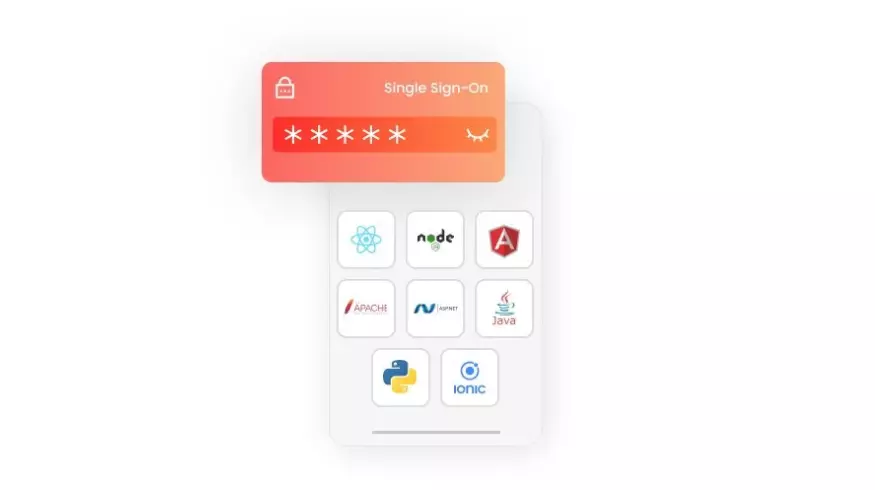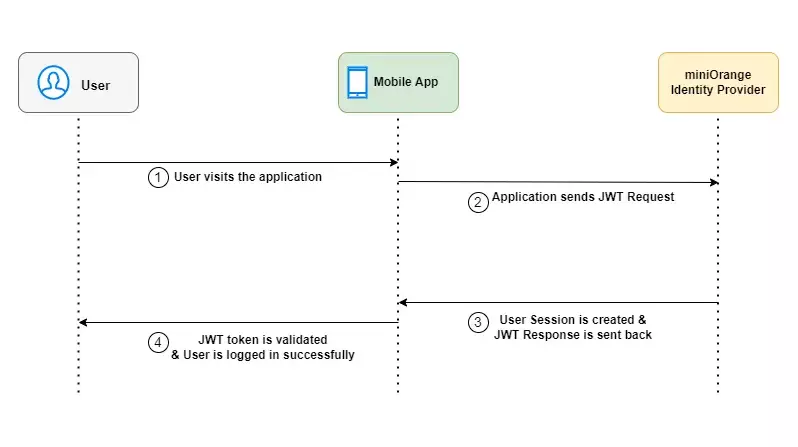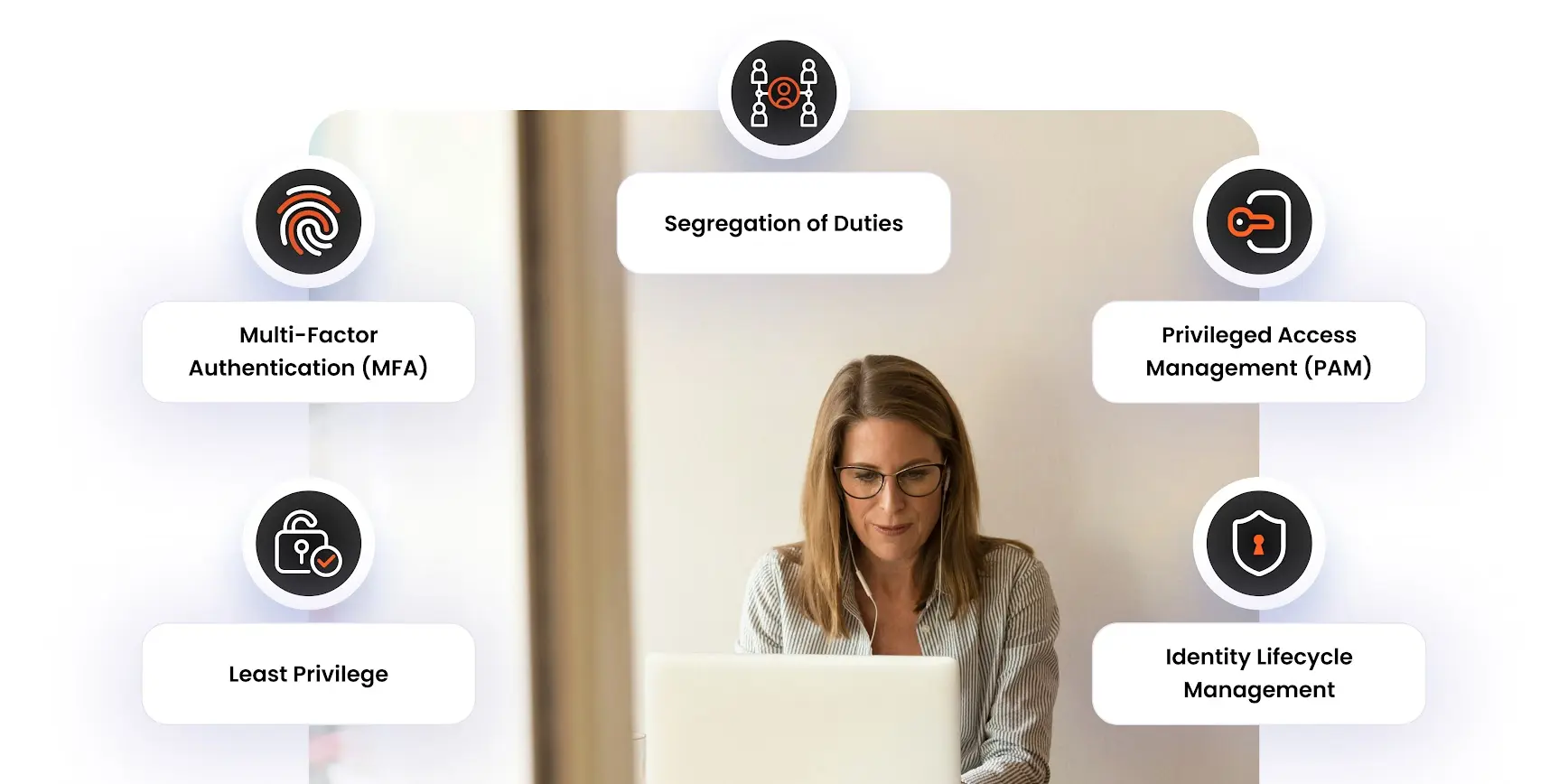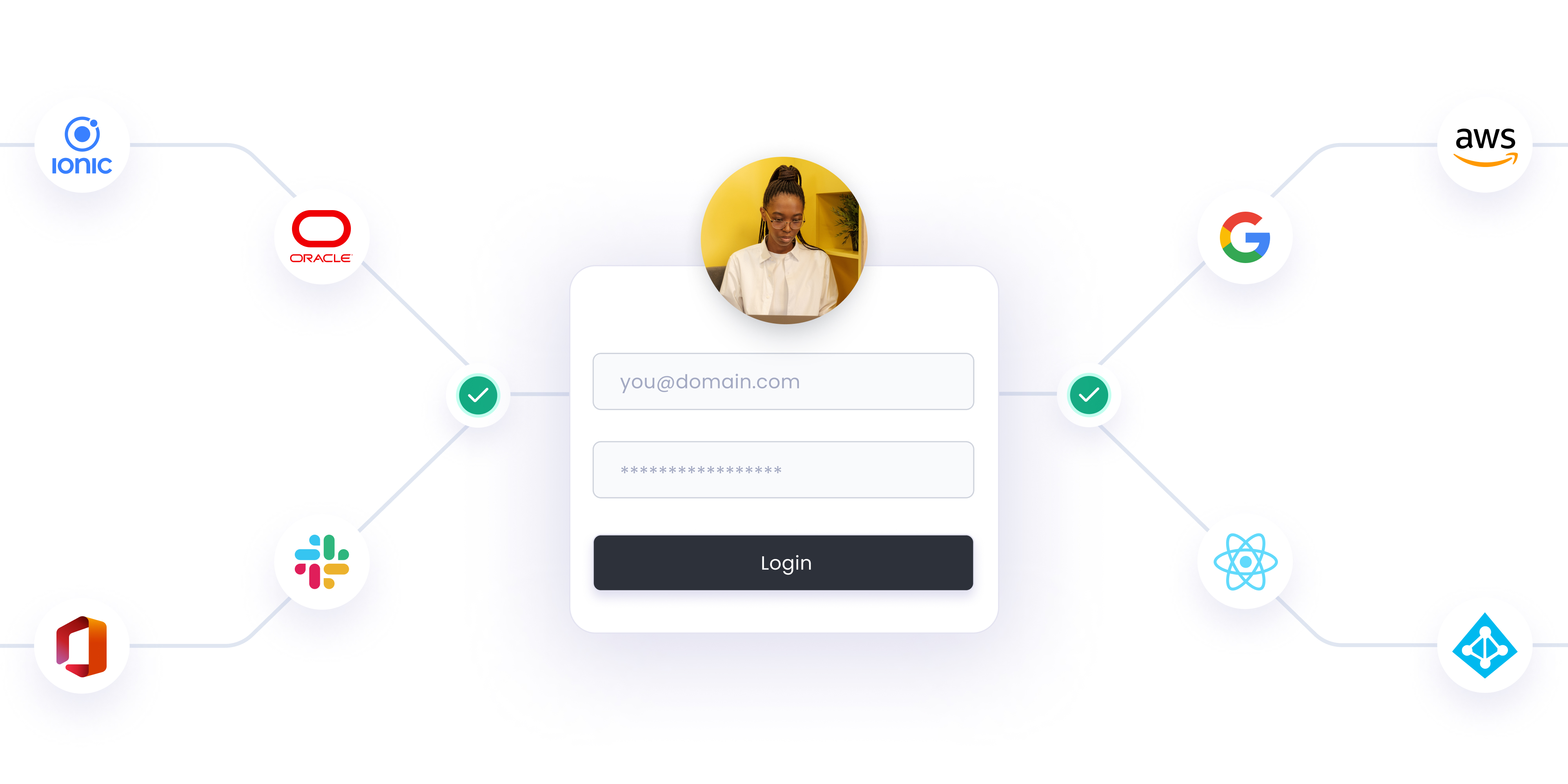In the early 2000s, SSO providers developed standards like SAML, WsFED, Active Directory (LDAP), etc which only targeted Web platforms These same protocols were not feasible in a mobile first world. The problem with mobile apps is that unlike websites, apps run as separate standalone applications. The user experience needs to be seamless for the end-user. This can be achieved using a common framework but, mobile apps can be packaged and built on various different frameworks like React, Angular, Ionic, Native Android, IOS etc. There are many choices out there.
In the initial days, Mobile App developers used to have their own authentication source. The simplest strategy was to store the username-password in the app or in the mobile OS’s secure storage. For remote authentication with the backend, a common secret key was made available on the mobile app itself. This created a clear risk for passwords to be stolen from the mobile device. To mitigate this risk, the OAuth protocol was introduced, which used tokens instead of passwords and common secret keys.
Since then, a lot of progress has been made in Mobile app development. With the world moving to handheld devices and the rise of the mobile market, mobile applications have become an important part of the Access Management Ecosystem.
Users now move between traditional websites and standalone apps on their mobile devices. Due to this users have to enter their credentials multiple times on different apps and websites. There’s also a lack of a centralized system that can connect to existing or traditional authentication sources and provide access to both web and mobile apps.
This has created a need for SSO in mobile applications. There’s a need for a common, centralized authentication source that can reduce user friction when moving between traditional websites and modern apps. Given the size of the screen, it’s a hassle for the users to re-enter their passwords across different mobile applications.
Having a centralized system allows users to not lean into bad password practices like having a common password across different applications or having insecure passwords. Having a centralized system allows us to enable Multi-Factor Authentication(MFA/2FA).
Based on interactions with customers over the past couple of years, it was noticed that there is a lot of confusion around the options available for implementing an SSO solution for mobile applications.
miniOrange SSO and Authentication SDKs for businesses

One of the worst strategies is to have the traditional username-password authentication flow for mobile apps. Enforcing complex passwords and having users enter those passwords on a smartphone is a challenge. Developing mobile apps has become a top priority for many businesses. miniOrange aims to help businesses achieve secure mobile authentication by providing various Android and iOS SDKs. miniOrange has kept the following aspects in mind:
Robust performance: miniOrange mobile SDK libraries save you time from building the core registration and login workflows for the framework you choose. Having a library specific to your framework means the code is greatly optimized for performance.
Easy Integration with different Identity Providers and Authentication Sources: Enable SSO from any existing Identity Provider or User Store for your mobile App. No Need to onboard users separately. With miniOrange SSO solution you can connect to IDPs or User stores like OKTA, One Login, Azure Active Directory, Active Directory, Database, etc.
Less Code Maintenance: No need to rewrite your code to support different protocols and authentication methods. Code once and be future-proof. Enable SSO for different platforms without having to make changes to the app.
Role-Based Access: Allow relevant access to relevant people. With miniOrange RBAC you will be able to decide which users and groups of users have access to the right set of apps on the basis of their roles.
Multiple Factor Authentication: Enable MFA / 2FA for all of your users while logging into your mobile app irrespective of which user store or IDP they choose. We offer support for 15+ MFA methods (this can be a link) like OTP over SMS & Email, Google Authenticator, Authy Authenticator, Push Notification, Soft Token, etc.
Enhanced security: miniOrange provides performance-optimized codes for all libraries and built-in security functions with HTTPS and API signing requests.
Anti-spamming measures: miniOrange supports the additional token – SOTT (Secure One Time Token), along with an API key, to avoid automated spam registrations in your mobile application.
Mobile Authentication using JWT
The following workflow explains the authentication flow between miniOrange and mobile apps:
-
Mobile Authentication Single Sign-On (SSO) allows you to authenticate users and subsequently inform applications that the user has been authenticated.
-
On successful authentication, a JWT token is generated and returned, which can be consumed by the app to create a user session.
-
The token is automatically verified on the mobile app using unique certificates and secret keys.
-
The user is then allowed to access the apps without being prompted to enter separate sign-in credentials.
This security mechanism allows applications to trust the sign-in requests it gets from the centralized authentication system. Furthermore, these Mobile apps will only grant access to the users who have been authenticated by you/admin. This has been achieved by using a common standard called JSON Web Token (JWT) for securing the exchange of user authentication data between systems. Great care must be taken in terms of how this token is stored and managed.

A Final Word
miniOrange Mobile authentication benefits both businesses and their consumers. It helps in developing and deploying seamless authentication and SSO features for businesses while securing, and enhancing consumer experiences.
You can empower your WordPress site with the ultimate authentication solution – our Single Sign-On plugin featuring support for WordPress OAuth SSO & WordPress SAML SSO designed for seamless authentication, authorization and granular access control.
miniOrange provides SSO solution for Mobile & Desktop Apps that runs natively on Mobile devices-
- SSO solution for React-based App
- SSO solution for Angular-based App
- SSO solution for Ionic-based App
- SSO solution for NodeJS-based App
In order to see a quick demonstration of how Mobile Authentication will work for your organization, please visit
Author





Leave a Comment